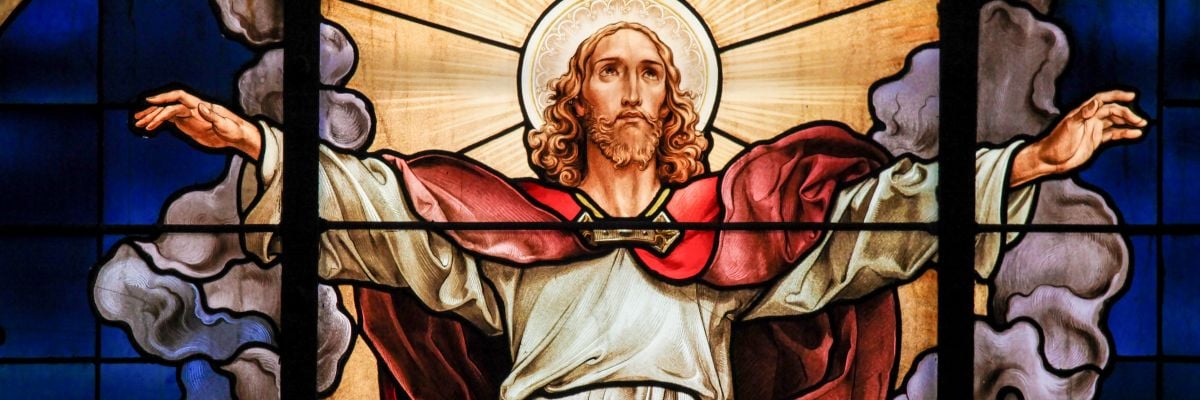
When Christ ascended to heaven, he left the apostles in charge of his Church on earth. The office of apostle was a special one. The Greek term apostolos roughly means “delegate” or “ambassador” and carries the idea of one who is authorized to act in place of and exercise the authority of the one who sent him. Thus the biblical apostles represented and exercised the authority of Christ.
The chief requisite for the office was having been personally commissioned as an apostle by Jesus (1 Cor. 9:1). This could have been done during his earthly ministry, as in the case of the original twelve apostles (Matt. 10:1-2), or afterwards, as in the case of Paul (Gal. 1:1-17). The one exception to this was Matthias, who replaced Judas. He was confirmed in office by God (Acts 1:24-26), and, though he did not receive his commission from Christ in person, he was a witness to Christ’s ministry (1:15-23).
As the Church grew in size, it became too large for the handful of apostles to govern by themselves, and it became necessary for them to delegate some authority and responsibilities. Over the course of the New Testament, we can track the way they did this.
The first office to be established is what we now call the diaconate, which was created due to a dispute over the proper apportionment of the Church’s charitable resources. Rather than oversee this area directly, the apostles appointed a group of seven men to oversee it, explaining “It is not right that we should give up preaching the word of God to serve tables” (Acts 6:2).
The next office was the priesthood or presbyterate. The Church began to grow geographically, with congregations in widely separated places. These congregations, many of which had been created by Paul on his missionary journeys, needed men to oversee them in the apostles’ absence, to perform the sacraments, and to preach in them. Paul appointed presbyters in the congregations he created (Acts 14:23), though the office had existed earlier (cf. 11:30).
The presbyters had oversight of individual congregations, but what about when the number of presbyters itself grew large? Who would have charge of appointing them and disciplining them when they got out of line? Originally, the apostles themselves retained this function, but, as the number of local congregations grew large and as the apostles aged, they appointed men to fulfill this task as well. Timothy and Titus were among them. They had the function of appointing and disciplining presbyters (1 Tim. 5:19-22, Titus 1:5) and thus of ruling indirectly over multiple congregations, including evangelizing new areas and planting new churches. Today we call those who have these tasks the bishops or the episcopacy.
The apostles thus set up first the office of deacon, then priest, then bishop. Every organization that grows tends to reallocate its functions in this “bottom up” manner, reallocating of its most important functions last of all. There was an additional reason why the early Church did so: In the first generation of Christians, it took time for everyone to mature in the faith to the point that some could serve in office (1 Tim. 3:6). By late in the first century, it became clear that Christ did not plan to appoint new apostles to fill the roles of the originals. They had served a special purpose as the first link between Christ and all later Christians, but their office was temporary. They passed from the scene, leaving the three-fold structure of bishops, priests, and deacons in place.
In this early period, the names for the different offices were in flux. There was not yet an established terminology. Titles with secular origins were used. Diakonos (deacon) meant “minister” in Greek, presbuteros (“presbyter”) meant “elder,” and episkopos (“bishop”) meant “overseer.” Because all the offices involved ministering to others and overseeing certain things, the terms could be applied in different ways.
Thus Paul, an apostle, occasionally described himself as a diakonos (2 Cor. 3:6, 6:4, 11:23, Eph. 3:7), meaning simply a minister. Likewise Peter, also an apostle, once described himself as a fellow presbuteros (1 Pet. 5:1), meaning an elder figure of the Christian community. Presbyters could be described asepiskopoi (Phil. 1:1, 1 Tim. 3:1-2, Titus 1:7), since they had the task of overseeing individual congregations, while those we now call bishops were termed “evangelists” (2 Tim. 4:5) because of their church-planting function.
By the end of the first century, the terms had acquired the fixed, technical meanings they have today. “Deacon” became the fixed description of the lowest order, “presbyter” (which was shortened to “priest”) was the term for those who oversaw individual congregations, and “bishop” became the term for those who oversaw multiple congregations.



